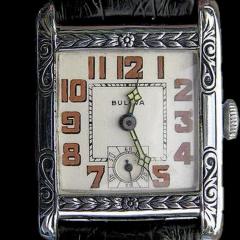-
Recently Browsing
- No registered users viewing this page.
-
Topics
-
Posts
-
By ManSkirtBrew · Posted
Oh nice. I have a similar wedge style stump for my staking tool, so I'll give that a shot. Thanks! -
By joelcarvajal · Posted
Thank you all for the replies! Very informative! True enough, the Gamsol took some time to evaporate and does leave a residue. So not all naphtha are created equal! Need to find alternatives then. i was able to try Hexane recommended by Alex and it seems great. I wonder what the cons are? -
Yeah, I saw that in the tech sheet but I don't see how it can be adequately cleaned with the friction pinion still in place. I've accidentally pulled the arbor right out of the wheel once when I used a presto tool to try and remove it. Mark shows how he does it with the Platax tool. Those are a little too pricey for me so I got one of these from Aliexpress and I just push down on the arbor with the end of my brass tweezers. That usually gets it most of the way out and then I just grab the wheel with one hand the and the friction pinion with the other and gently rotate them until it pops off. Probably not the best way but it's seemed to work for me so far.
-
Thanks, Jon Sounds like a plan. Obviously I'll have the face on so do you think gripping with the holder will create any problems, but I will check in the morning to see how feasible it is but I assume it only needs to be lightly held. As for holding the movement instead of the holder won't be possible in this scenario as one hand will be puling on the stem while the other pushes the spring down. That was my initial concern is how the hell can I do this with only one pair of hands. All the other times I've had to remove the stem hasn't been a problem, apart from the force required to release the stem from the setting lever, but now I need to fit the face and hands its sent me into panic mode. If it had the screw type release things would be a lot simpler but that's life 😀 Another thing I will need to consider is once the dial and hands are fitted and the movement is sitting in the case I will need to turn it over to put the case screws in. I saw a vid on Wristwatch revival where he lightly fitted the crystal and bezel so he could turn it over, is this the only option or is there another method?
-
By nevenbekriev · Posted
Hi Jon, do You think that relation spring torque - amplitude is linear? I would rather guess that the amplitude should be proportional to the square of the torque. I had once idea to check it, but still haven't.
-






Recommended Posts
Join the conversation
You can post now and register later. If you have an account, sign in now to post with your account.
Note: Your post will require moderator approval before it will be visible.